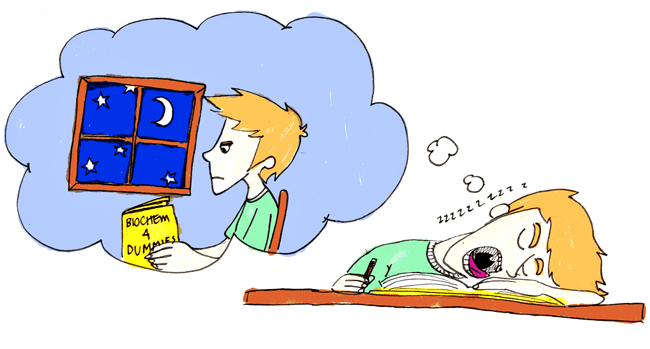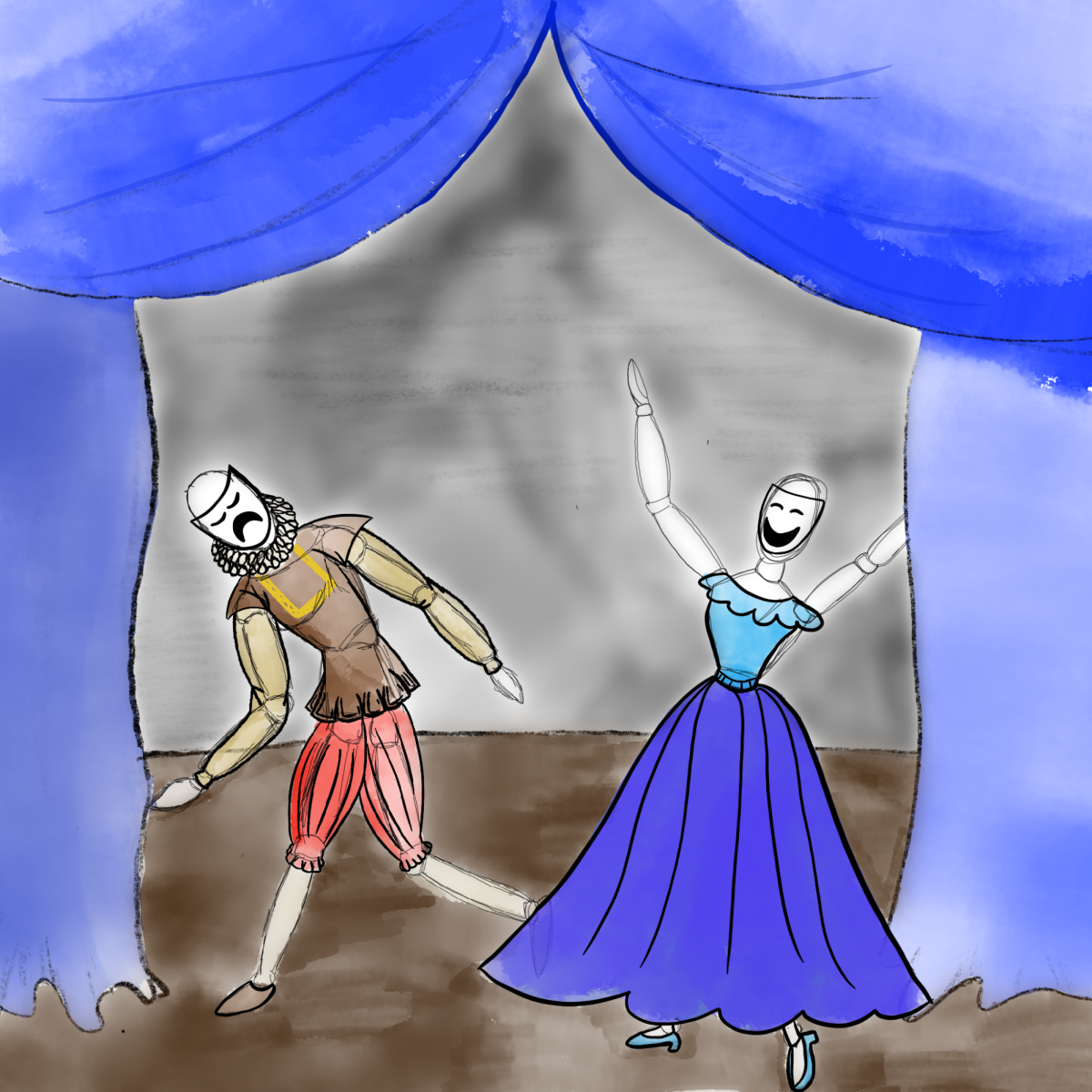Final exams are almost here, which means it’s time to choose between sacrificing either sleep or study time, unless there’s some way to combine the two. Maybe, just maybe, if you listen to information while you sleep, you’ll wake up in the morning reenergized, refreshed and ready for that organic chemistry final.
Most college students want this to be true but also know dozing off during the lectures has not helped all semester. Still, it never hurts to take a look at what the scientific literature has to say.
It doesn’t take long to find a paper from 1956 that debunks the “study in your sleep” myth. In this experiment, researchers played audio recordings of questions and answers for sleeping subjects while recording their brain waves. Upon waking, the subjects received a test on exactly the material they heard the night before.
The brain wave monitors allowed scientists to tell exactly how deep into sleep the subjects were when they heard each piece of information. The researchers found that the deepest level of sleep where the experimental group outperformed the control group corresponded to “heavy drowsiness.” In other words, the only cases where the trick worked were the ones in which the subjects were still awake to hear the answers.
Still, there is some research that provides hope that there may be a way to learn while in the land of dreams.
Babies, for instance, have the capacity to learn new things while sleeping. An experiment took several infants, no more than a few days old, and fed them formula until they fell asleep. The researchers then blew air into the sleeping babies’ faces but preceded each burst with an audible tone. When the babies awoke, they would react to hearing the tone, expecting to receive the burst of air even when none came. A follow-up study found that babies learn to react even better when there are social cues involved.
Baby brains and sleep states don’t function in the same way adult brains do, but a study published in Nature suggests something similar to this effect may be possible with adults. Researchers combined various odors — pleasant ones, such as shampoo or deodorant, and unpleasant ones, such as rotting fish — with specific sounds while subjects slept. Once the association became strong enough, subjects reacted to the sounds while still asleep, sniffing up a greater volume of air for the pleasant smelling sound and a smaller amount for the unpleasant one.
Then the scientists exposed the subjects to the smells during the early moments of deep sleep, which are referred to as slow-wave sleep or SWS. Once awake, this effect continued.
It’s unlikely that this is helpful unless your final has something to do with smelling rotten fish, but the proof of concept is here: It is possible to learn new things while asleep.
More significantly, a study published in Science indicated that there may be ways to better help reinforce things we’ve already learned during sleep. Subjects performed a memory-related task while exposed to a rosy scent and then went to sleep. During SWS, when it’s believed that the brain consolidates memories, scientists re-exposed the dozing subjects to the rose scent.
Upon waking, the subjects scored an average of 97.2 percent as compared to a control group’s 85.8 percent on a test of the memory task from the previous day. The effect is significant, but only when the scent exposure occurred during SWS. When presented during the rapid-eye movement, or REM, cycles associated with deeper sleep states, the scent had no effect on the subjects’ performances.
Further investigation revealed that this effect may be limited. Researchers noted that the improvement didn’t occur when the subjects performed a task that was more procedural in nature, such as tapping their fingers in a specific sequence. This is bad news for music performance majors but good news for virtually everybody else.
With that in mind, if you want to do well on your finals, your best bet is to study hard, get plenty of sleep and, possibly, keep a bouquet of roses nearby.















